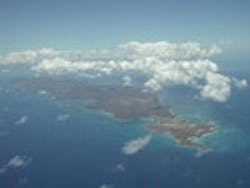Puerto Rico Aqueduct and Sewer Authority to Spend More Than $195 Million on Improving Drinking Water
The Puerto Rico Aqueduct and Sewer Authority (PRASA) has agreed to implement major capital improvements and upgrades to resolve alleged longstanding violations of the Clean Water Act at 126 drinking water plants across the island and violations of the Safe Drinking Water Act at three others, the Justice Department and U.S. Environmental Protection Agency (EPA) announced. Most of the communities served by the drinking water treatment plants that will be upgraded under the agreement are in low-income communities.
The agreement, filed in federal court in the District of Puerto Rico, requires PRASA to implement measures to properly handle harmful pollution from 126 drinking water treatment plants that discharge into Puerto Rico’s lakes, rivers and streams, some of which are sources of drinking water. The work required by the agreement, when fully implemented by PRASA, is estimated to cost more than $195 million.
The announcement was made by John Cruden, deputy assistant attorney general for the Environment and Natural Resources Div. of the U.S. Department of Justice, Rosa Rodriguez-Velez, U.S. attorney for the District of Puerto Rico and Judith Enck, EPA regional administrator for Region 2.
PRASA will also pay a $1.02 million civil penalty and spend more than $2.5 million to improve the water quality of either Lake Toa Vaca or both Lake Toa Vaca and Lake Cidra. The consent decree replaces two prior agreements between PRASA and the federal government, one from 1995 and one from 2001. It provides for a comprehensive and integrated set of measures aimed at ending PRASA’s cycle of past violations.
“The long overdue improvements that will result from this agreement will enhance water quality across Puerto Rico, especially in low-income communities,” Enck said. “Millions of pounds of potentially harmful pollutants will be kept out of Puerto Rico's lakes, rivers and streams, which means a healthier environment and improved public health.”
EPA estimates that the agreement will reduce by 15 million lb annually the amount of suspended solids discharged into Puerto Rico’s lakes, rivers and streams, some of which are sources of drinking water. Suspended solids are small particles that can carry pathogens potentially harmful to human health and the environment, and can harm water quality by consuming oxygen.
Source: U.S. EPA
